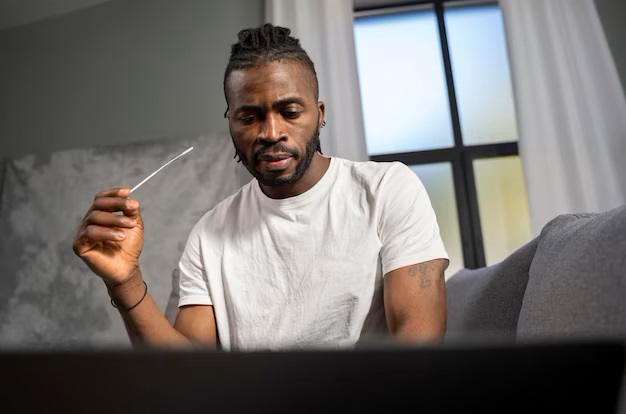In the realm of civil litigation, adherence to procedural requirements is paramount. The failure to meet these obligations can lead to significant repercussions, impacting not only the individuals involved but also the integrity of the legal process. This section delves into the implications faced by a prominent figure due to inadequate compliance with court mandates, shedding light on the often-overlooked importance of transparency in legal matters.
The situation serves as a stark reminder of the necessity for parties to engage fully with the discovery process. When essential documentation is withheld, it can distort the truth-seeking function of the judicial system. This instance highlights how noncompliance can trigger disciplinary measures, reinforcing the idea that accountability is essential for a fair resolution of disputes.
As the case unfolds, it becomes clear that the ramifications extend beyond mere financial penalties. The outcome may influence public perception and trust in the judiciary, underscoring the delicate balance between individual rights and the collective interest in upholding justice. The repercussions faced by the individual in question signal a broader message: all participants in the legal arena must uphold their responsibilities to ensure a lawful and equitable environment.
Background of the Defamation Case
This section delves into the origins and developments surrounding a legal dispute centered on allegations of slander and misinformation. The events leading to this controversy are crucial for understanding the broader implications of the accusations that have garnered significant public attention.
Initial Allegations
The conflict began when specific claims were made regarding an individual’s activities and associations that raised eyebrows within the political and media landscapes. These assertions, perceived as damaging, prompted the affected party to seek legal recourse in order to safeguard their reputation and credibility.
Litigation Developments
As the proceedings unfolded, the involved parties exchanged various communications and evidence. However, complications arose when one side was accused of not complying with requests vital to clarifying the situation. This noncompliance escalated, contributing to the overall tension of the dispute and leading to potential repercussions in the pursuit of justice.
Overview of Legal Challenges
This section delves into the various legal troubles faced by the prominent figure in recent years. His journey through the judicial system has been marked by controversy and scrutiny, leading to numerous complicated situations that have drawn public attention. As he navigates through these intricate issues, the implications on his career and reputation become increasingly significant.
Key Legal Battles
- Multiple lawsuits alleging false statements.
- Challenges related to professional conduct and ethical standards.
- Financial repercussions tied to ongoing litigation.
Consequences and Implications
The ramifications of these ongoing disputes are manifold. They not only affect personal standing but also have broader impacts on political alliances and public perception. As the situation unfolds, the outcomes may reshape his legacy in the landscape of American politics.
- Potential loss of professional licenses.
- Strain on personal finances due to legal fees.
- Changes in public support and endorsement from peers.
Implications of Sanctions in Court
The consequences of punitive measures in legal proceedings can be far-reaching, affecting not only the parties involved but also the overall integrity of the judicial system. When a participant receives a reprimand, it serves as a warning to others about the importance of compliance with court rules and expectations. Such actions can significantly influence future behavior and decision-making within the legal landscape.
One immediate effect of these penalties is the erosion of trust between litigants and the judiciary. When one side is perceived to be acting in bad faith, it can create an atmosphere of suspicion and hostility. This may lead to extended disputes, increased legal fees, and possibly unfavorable judgments for the offending party. Additionally, it can hinder effective resolution and prolong the litigation process.
Moreover, punitive actions can set a precedent, influencing how similar cases are handled in the future. Courts may adopt stricter adherence to procedural guidelines and enhance scrutiny over participants’ conduct. This shift could result in a more rigorous enforcement environment where parties must exercise greater diligence in their legal obligations, potentially altering the dynamics of how cases are presented and argued.
In a broader context, the imposition of penalties underscores the critical role that accountability plays in maintaining an equitable legal framework. It reinforces the notion that adherence to court directives is not merely optional but essential for the effective functioning of the justice system. As a result, the legal community must remain vigilant in upholding these standards to ensure fair and just outcomes for all parties involved.
Reactions from Legal Experts
The recent ruling in this high-profile matter has generated a variety of opinions among legal professionals. Many are evaluating the implications of the decision and what it means for similar proceedings in the future. Experts are keen to discuss the potential ramifications for legal practice and the conduct of individuals involved in such contentious disputes.
- One attorney highlighted the importance of compliance with judicial mandates, emphasizing that failure to adhere could result in significant consequences for clients.
- Another expert pointed out that the ruling serves as a cautionary tale for those engaged in litigious activities, reinforcing the necessity of transparency and cooperation in legal processes.
- A prominent legal analyst noted that this situation could shift the dynamics of how attorneys prepare for trials, especially involving sensitive allegations.
Furthermore, some commentators speculate on the lasting influence this ruling may have on the legal landscape. They argue that such precedents can deter similar behaviors in future legal battles.
- Enhanced scrutiny from the judiciary may become more commonplace.
- Defendants might face stricter guidelines regarding the handling of evidence.
- This case may inspire calls for greater accountability in legal representation.
In conclusion, the insights from various legal experts shed light on the broader implications of the case, indicating a potential shift in practices and expectations within the sphere of legal disputes.
Impact on Giuliani’s Public Image
The recent developments have significantly influenced the way the former mayor is perceived by the public and media outlets. As the legal proceedings unfold, the scrutiny surrounding his actions has intensified, raising questions about his credibility and integrity. This situation not only affects his reputation but also has broader implications for his political legacy and future prospects in public life.
Damage to Credibility
With the ongoing challenges he faces, the erosion of trust among supporters and critics alike has become apparent. Many are reevaluating their opinions, pondering whether his statements can be relied upon moving forward. The perceived inability to uphold standards expected from someone in his position is leading to a reconsideration of his previous accomplishments.
Long-Term Consequences
As the narrative progresses, the potential long-term effects on his public persona may be profound. If the current trajectory continues, it could phase out any remaining political ambitions. Furthermore, negative portrayals in the media may linger, shaping public perception long after the immediate situation resolves. This episode serves as a cautionary tale about the fragile nature of reputation in the realm of politics.
Future Developments in the Lawsuit
This section will explore the anticipated progress and changes in the legal proceedings stemming from ongoing disputes. As circumstances evolve, various factors could influence the direction of the lawsuit, leading to significant implications for all parties involved.
As the trial date approaches, the court may impose additional measures to ensure compliance with procedural requirements. Such actions could include further penalties or modifications to the timeline for evidence submission. The legal teams are likely to focus on strategizing their approaches to navigate these potential hurdles effectively.
Moreover, public interest in the matter may prompt media coverage that could impact public perception and the dynamics of the legal battle. Both sides are expected to prepare for possible shifts in narrative, which could influence their arguments and the evidence deemed relevant for the court.
The ongoing proceedings will also provide opportunities for settlement discussions, as parties may seek to resolve the dispute outside the courtroom. Future negotiations could lead to unprecedented outcomes, transforming the landscape of the legal confrontation.
Overall, the forthcoming months will be critical as developments unfold, and stakeholders will need to remain vigilant in adapting their strategies to the changing legal environment.
Q&A: Giuliani sanctioned failing produce records defamation case
What led to the sanctions imposed on Giuliani in this defamation case?
Rudy Giuliani faced sanctions primarily because he failed to comply with court orders regarding the production of evidence in a defamation lawsuit. The case stems from his public statements regarding the 2020 election and the individuals and organizations he accused of wrongdoing. The court determined that his non-compliance hindered the judicial process, leading to sanctions aimed at enforcing accountability and ensuring legal procedures were followed.
What are the implications of these sanctions for Giuliani’s legal career?
The sanctions can have serious implications for Giuliani’s legal career. They not only damage his credibility as an attorney but also raise questions about his ability to effectively represent clients in the future. Sanctions imply a lack of professionalism, and Giuliani may face increased scrutiny from regulatory bodies. Additionally, the sanctions could result in further legal consequences, including potential fines or restrictions on his legal practice.
How does this case fit into the larger context of defamation law in the United States?
This case highlights significant aspects of defamation law in the U.S., particularly regarding the responsibility of public figures to substantiate their claims. Defamation suits often hinge on the ability to prove that false statements were made with actual malice or reckless disregard for the truth. Giuliani’s situation emphasizes the legal obligation to produce evidence when facing defamation allegations, showcasing the balance between freedom of speech and the protection of individuals’ reputations.
What kind of evidence was Giuliani required to provide in the case?
Giuliani was required to produce various forms of evidence, including emails, documents, communications, and other relevant records that could support his claims. This evidence was crucial for both sides in the case to establish the context and validity of the statements made. His failure to comply with these discovery orders led the court to impose sanctions, as the evidence was deemed essential for a fair trial and adjudication of the defamation claims.
What might happen next in the defamation case against Giuliani?
In the coming months, the defamation case may proceed with the court addressing the sanctions imposed on Giuliani. He may need to comply with additional discovery orders or face further penalties, including financial repercussions or restrictions on his legal practices. The case could also go to trial if the parties are unable to reach a settlement. Depending on the proceedings, Giuliani might have to mount a defense that relies on the evidence he has submitted or seek ways to remedy his earlier non-compliance to mitigate the sanctions already issued.
What ruling did Judge Beryl Howell make regarding Rudy Giuliani’s defamation of two Georgia election workers, Ruby Freeman and Moss, following the 2020 election?
Federal Judge Beryl Howell ruled Wednesday that Rudy Giuliani is liable for defaming two Georgia election workers, Ruby Freeman and Moss. The judge ordered Giuliani to pay punitive damages after finding that he had falsely accused them of election fraud, which was a prime example of the weaponization of false claims in the aftermath of the Georgia election. Howell emphasized that taking shortcuts to win an election carries serious risks, and by failing to fulfill the normal process of discovery, Giuliani had undermined the judicial process. Howell stated that Giuliani’s behavior has served only to subvert the normal process, making it clear that there are serious consequences for defaming individuals in a court of law.
How does Judge Howell’s ruling address the consequences of bypassing the discovery process in Giuliani’s case against the Georgia election workers?
Judge Beryl Howell found that Giuliani had attempted to bypass the discovery process and had failed to turn over records requested by the election workers. In her ruling, she stated that the discovery process carries serious sanctions, which can result in liability for parties who do not comply. Howell noted that Giuliani’s repeated failure to produce discovery effectively filled the case with more holes than Swiss cheese, leading to her determination that he is liable for defaming the Georgia election workers. She underscored that playing the cloak of victimization may play well on a public stage but does not hold up in a court of law, reinforcing the idea that all parties must adhere to the rules of discovery to ensure fairness in legal proceedings.
What are the implications of the recent ruling by District Judge Beryl Howell regarding Rudy Giuliani’s liability for defaming Georgia election workers, and how does it reflect on his public persona?
Federal Judge Beryl Howell ruled Wednesday that Rudy Giuliani is liable for defaming two Georgia election workers, a decision that underscores the serious consequences of making unfounded claims in a public forum. In a straight-forward defamation case, Howell stated that Giuliani failed to produce documents during the discovery process, highlighting his unwillingness to comply with legal standards. This ruling indicates that Giuliani will have to pay damages for his defamatory statements, which he made publicly while speaking to media outlets, including One America News. Howell emphasized that winning an election carries risks—even potential criminal implications—when spreading falsehoods about election results. Giuliani, who previously served as the former New York City mayor, has seen his businesses and reputation come under scrutiny as a result of this case. Howell’s judgment serves as a reminder that public performances designed to cloak misconduct can backfire in a court of law. As Giuliani said in a statement, he believed he was acting within his rights; however, the ruling clearly states otherwise, indicating that his attempts to play to certain audiences on the public stage have not only been legally untenable but have also exposed him to substantial liability.
What were the recent developments in the case where a federal judge ruled Wednesday that Rudy Giuliani is liable for defaming Georgia election workers?
On Wednesday, a federal judge ruled that Rudy Giuliani is liable for defaming Georgia election workers in a case stemming from false claims about the 2020 election. The district court judge Beryl Howell emphasized that Giuliani’s statements, made on various platforms including One America News Network, were not merely opinions but were damaging claims against two election workers. Howell said Giuliani had failed to provide sufficient evidence to support his claims, and rather than produce discovery, he chose to make unsubstantiated allegations. This ruling signifies that Giuliani’s behavior on the public stage to certain audiences, including his appearances where he repeatedly claimed election fraud, has serious legal consequences. Giuliani has also faced repercussions in the discovery process and a merits hearing that followed, demonstrating the significant risks that come with making baseless claims about election integrity, especially when seeking to win an election. As Giuliani speaks to the media about his ongoing legal battles, his lawyer insists that they will appeal the ruling, which could further complicate his already troubled businesses and political future.
What are the implications of Giuliani being found liable for defaming individuals related to the 2020 election?
Rudy Giuliani speaks about the implications of his recent legal troubles, where he has been found liable for defaming individuals associated with the 2020 election. The court of law this performance underscores the seriousness of making unfounded allegations, as Giuliani’s behavior has resulted in significant legal ramifications. His lawyer, Rudy Giuliani, has indicated that the ruling is a setback, and they plan to appeal. The judgment highlights that Giuliani businesses may be adversely affected by these legal issues, given the costs associated with the litigation. Moreover, as a former New York City mayor, Giuliani’s credibility has been called into question, especially since he has repeatedly made claims regarding election fraud that have been disproven. The ruling serves as a reminder that win an election carries risks, particularly when one chooses to engage in falsehoods rather than simply play by the rules. Those who have sued Giuliani for failing to provide accurate information in his public statements may find some validation in the court’s decision, which emphasizes the importance of preserving and producing truthful evidence in any claims made.
What are the consequences of Giuliani being deemed liable for defaming individuals connected to the 2020 election?
Rudy Giuliani, the former New York City mayor, has been deemed liable for defaming individuals related to the 2020 election, which has significant consequences for him personally and professionally. The law this performance has served as a pivotal reminder of the legal repercussions tied to making unfounded claims. Giuliani repeatedly made allegations of election fraud without evidence, leading to lawsuits from those he defamed. As a political adviser to Giuliani, it is clear that this ruling not only affects his reputation but also the political landscape in which he operates. In response to the claims against him, Giuliani filed counterarguments that ultimately failed to protect him from liability. The judgment underscores the importance of adhering to the truth in public discourse, particularly for someone of Giuliani’s stature.
What are the implications of the court’s decision declaring Giuliani liable for defaming individuals involved in the 2020 election?
The court’s decision declaring Giuliani liable for defaming individuals involved in the 2020 election has significant implications for both Giuliani personally and the broader political context. As a former New York City mayor, Rudy Giuliani made several controversial statements claiming election fraud, which have now been proven to lack factual support. This ruling not only tarnishes Giuliani’s reputation but also sets a precedent for accountability regarding public figures who spread misinformation. The decision serves as a critical reminder that making unfounded allegations can lead to serious legal consequences, reinforcing the importance of truthfulness in political discourse. This liability may also affect Giuliani’s professional opportunities and relationships within political circles, as he navigates the fallout from the case.








